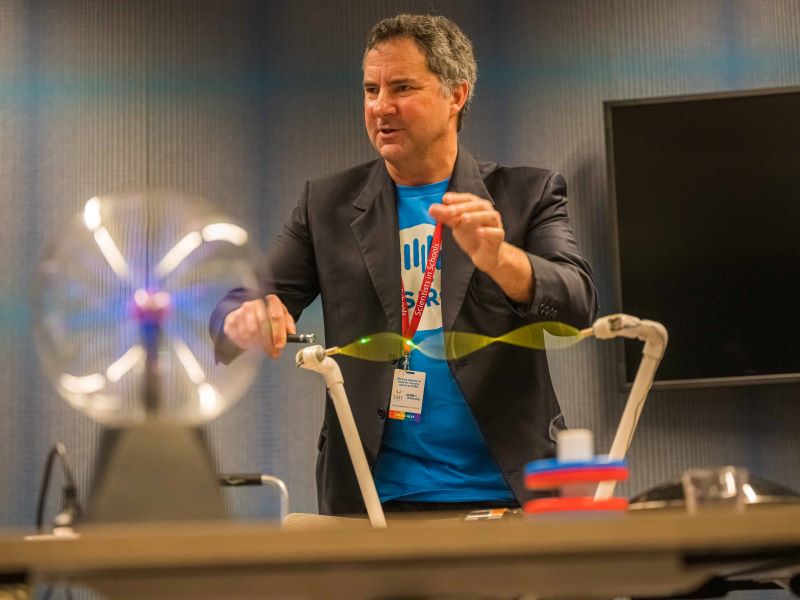As a landmark Canberra skills summit approaches, the nation’s top scientists are asking the government to think long term, warning kids are turning away from STEM subjects in droves and leaving Australia ill-equipped for a global innovation race.
“We know we lose half the girls before year eight [from STEM studies]. And we know we lose at least the other half of everyone before they get to uni,” CSIRO chief executive Dr Larry Marshall told InnovationAus.com.

The pipeline of STEM skills has been declining for a “very long time”, Dr Marshall said, but has reached the point where turning it around needs to be a national priority.
“That, frankly, should be a national mission — turning around the decline. We are really thinking about that, trying to figure out how to make that happen.”
Dr Marshall and CSIRO are on a STEM engagement blitz for National Science week, demoing a ‘Smart Bin’ that uses artificial intelligence, machine vision and behavioural science to automate recycling to school children in Sydney on Monday.
“We’ve got to grow the next generation to have those STEM skills, otherwise they won’t be able to do the things we need them to do to invent a better future,” he said after the demonstration.
Dr Marshall is thinking long term and his ultimate measure of success is jobs.
“When I was [a graduate], I left Australia because I couldn’t get a job here. I want my kids and those kids to not have to do that, so it’s very much about jobs.”
CSIRO will be represented at four of the five industry roundtables convened by Industry and Science minister Ed Husic this week ahead of the inaugural Jobs and Skills Summit next month.
The national science agency is joined by Australia’s chief scientist in the call to urgently develop STEM skills to supply a more complex economy.
Dr Cathy Foley told the ABC on Monday that not enough young people recognise the knowledge-based opportunities presented by emerging industries like renewables, space, quantum and biotech, which together could create a “huge pipeline of jobs”.
“One of the things is going to be really important for us at the Jobs and Skills Summit is to make sure that we take a systems approach, that we’re looking at structural changes, and we work out how to rebalance the workforce so that where there’s jobs coming up that young people realise that there’s an opportunity for them,” Dr Foley said.
The immediate demand of these types of sectors means skilled immigration will play a significant role, Dr Marshall said.
But more systematic changes are needed to attract the world’s best innovators, many of them expats, that then help develop home grown talent.
He points to London-born UNSW Scientia Professor of Quantum Physics Michelle Simmons as an example. She arrived in Australia in 1999 and helped spur a quantum research industry now considered one of the world’s best.
“It’s not that we don’t have brilliant people, but we just we don’t have enough of them. If we can attract more people like that it will help us move forward,” Dr Marshall said.
On Wednesday, Treasury released the Jobs and Skills Summit discussion paper which included “maximising opportunities in industries of the future” as a key theme, alongside skills, training and migration. The invite-only Australian Jobs and Skills Summit begins September 1.
Do you know more? Contact James Riley via Email.

